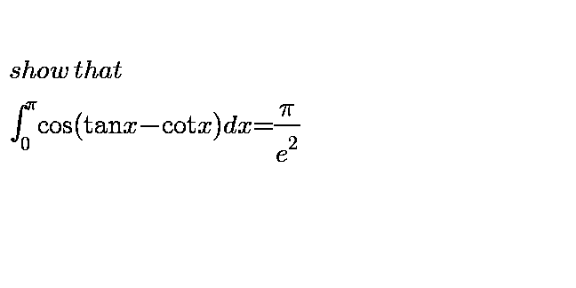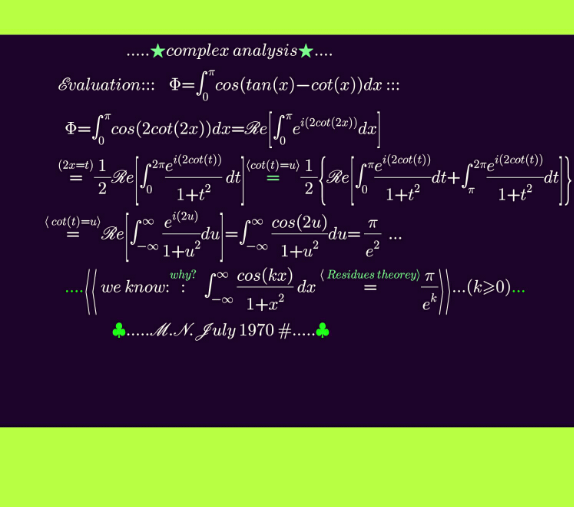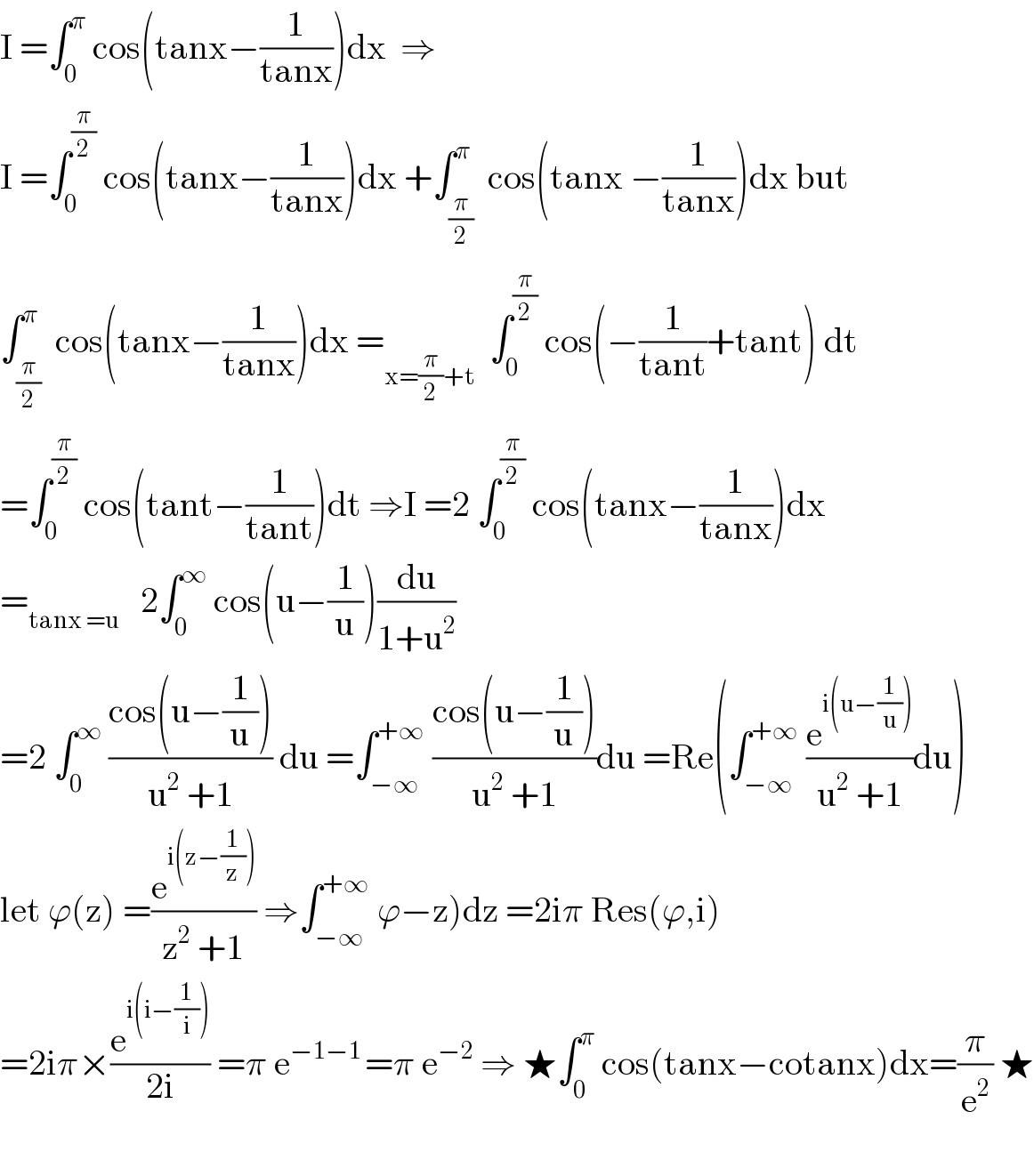
Question and Answers Forum
Question Number 109909 by mathdave last updated on 26/Aug/20

Commented by mnjuly1970 last updated on 26/Aug/20

Commented by mathdave last updated on 26/Aug/20

Commented by mohammad17 last updated on 26/Aug/20

Commented by mathmax by abdo last updated on 26/Aug/20

Commented by mathdave last updated on 26/Aug/20

Commented by mathmax by abdo last updated on 26/Aug/20

Answered by mnjuly1970 last updated on 26/Aug/20

Answered by mathmax by abdo last updated on 26/Aug/20

Commented by mathmax by abdo last updated on 26/Aug/20

Commented by mnjuly1970 last updated on 26/Aug/20

Commented by mathmax by abdo last updated on 26/Aug/20

